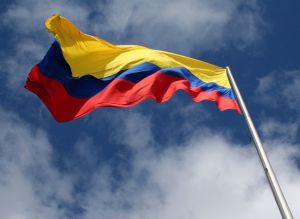Interview with the Chancellor Arturo Sierra Of University Of Cartagena

Peter Tase: What are the benefits of Colombia in the Alliance of the Pacific and what are the principal contributions of President Juan Manuel Santos in this regional economic bloc?
Chancellor Arturo Sierra: The Pacific Alliance constitutes a very pertinent space of integration; there are strong ties, beyond economic cooperation, with countries that can share experiences, histories, ways of life and strategies for the future. Colombia, Chile, Mexico and Peru constitute a bloc of countries who are looking for a space in the ensemble of nations; and this alliance allows dialogue – as a solid alliance – with other interlocutors, such as the countries of Asia Pacific. While taking this measure, there are fewer disparities during the integration process with a few Asiatic economies that very solid. In this context, the experience of Juan Manuel Santos, an excellent expert of regional integration, has permitted that the Pacific Alliance would be built upon the strength of all its member countries.
PT: How would you characterize the bilateral political – commercial relations between Colombia and the neighboring countries, Peru, Ecuador, Venezuela, and Brazil?
AS: One of the great accomplishments of the Santos Government has consisted in reshaping the relations and alliances with a few neighboring countries, especially with Venezuela and Ecuador. It is clear that the administration of Alvaro Uribe, in ideological antagonism with a few Latin American countries, maintained a level of tension and ruptures with a few countries in the region. While inheriting these challenges, President Santos was aware that political tensions brought commercial consequences, migratory challenges and obstacles to integration, and immediately committed himself to set aside political positions, differences and brought his country closer to the path of economic integration in the continent.
PT: What is one of the most renowned research fields in the University of Cartagena?
AS: There are no doubts that the Schools of Medicine and Law, for their historical trajectory (were founded with the University in 1827) and their contributions have a tremendous importance in the institutional image. Nonetheless, today the University of Cartagena has nine Schools and all of them demonstrate very positive research indicators. Today we can affirm that in our university there is not a single school left behind, they all show great results and high quality of teaching.
PT: What are the challenges of your university as it is entering in the second decade of XXI century?
AS: For the next decade the key words are to offer services with great quality, international projection, financial sustainability, high quality of human resources, cooperation and integration, as well as place our university in the culture of digital age while breaking the concept of frontiers.
Biography of the Interviewee:
Dr. GERMÁN ARTURO SIERRA ANAYA
Chancellor of the University of Cartagena, Colombia
(2006-2010 y 2010-2014)
Dr. Arturo Sierra, is an economist and graduated from the University of Cartagena. He specialized as an administrator of Enterprises and marketing in the University of Cartagena and the EAFIT University in Medellin. Received his Master’s Degree in Public Administration from the International University of Andalucía, Spain, and completed his Doctorate in Business Administration and Marketing at the University of Seville, Spain. During his career at the University of Cartagena, Dr. Sierra has been a full professor, department chair, dean of the School of Economic Sciences; representative of the academic authorities in the Superior Council and Vice-Chancellor for Academic Affairs. Has published four books on marketing and tourism as well as many scientific articles in renowned national and international magazines; in 2009 Chancellor Arturo Sierra was awarded an Honorary Doctorate Honoris Causa from the National University Daniel Alcides Carrion in Peru.




